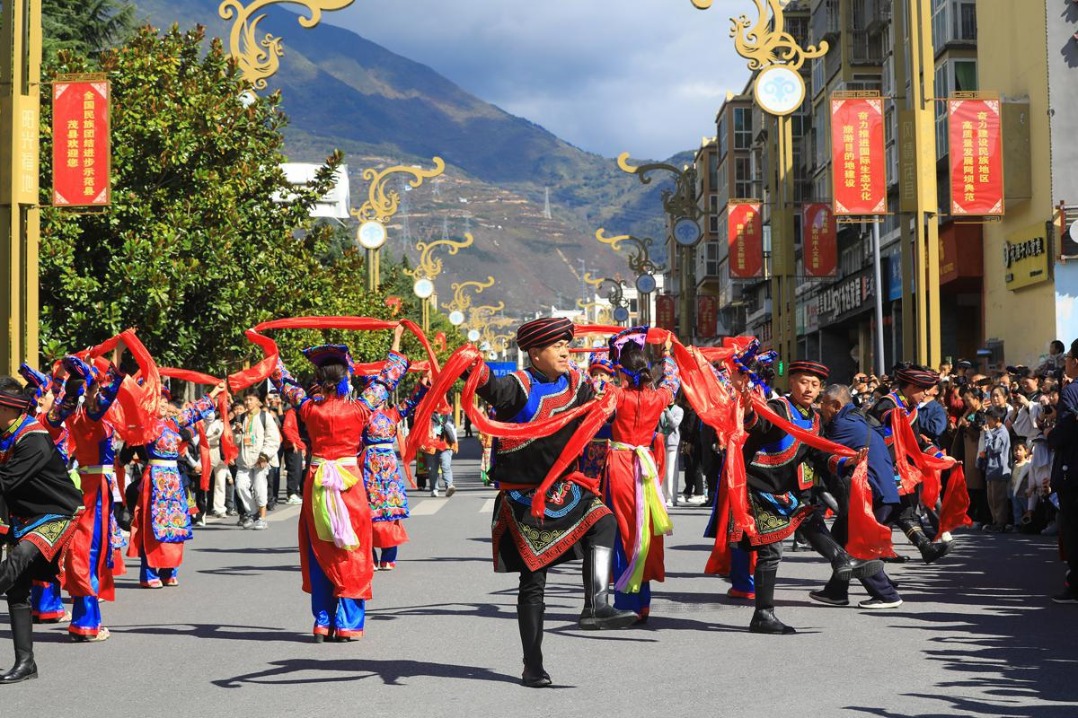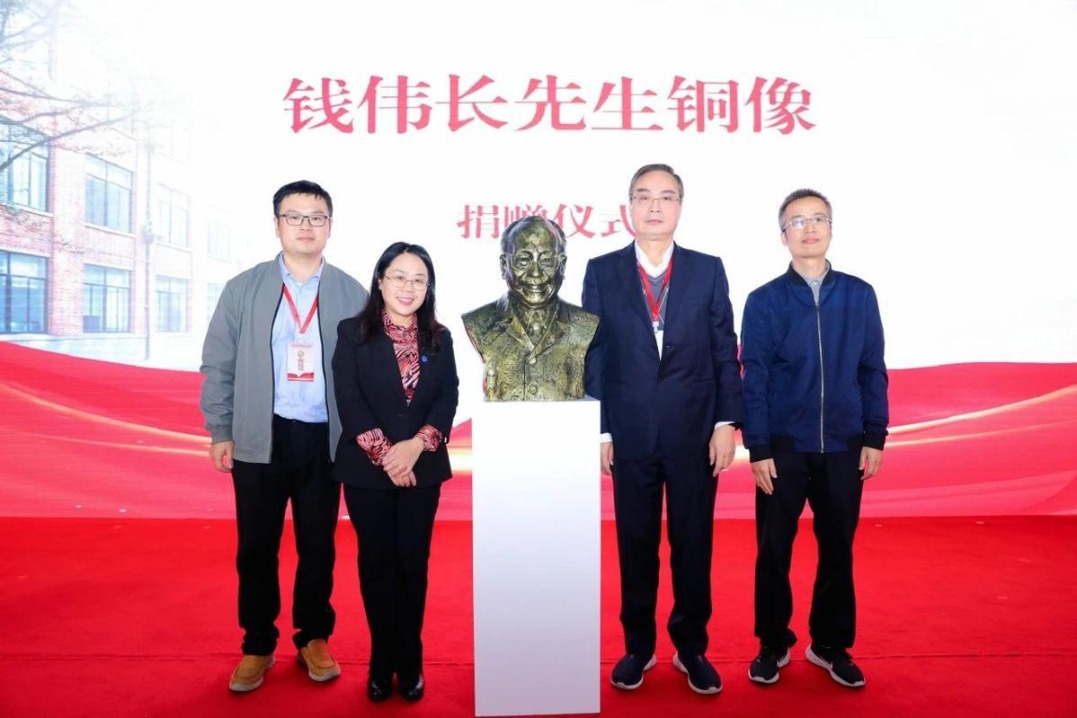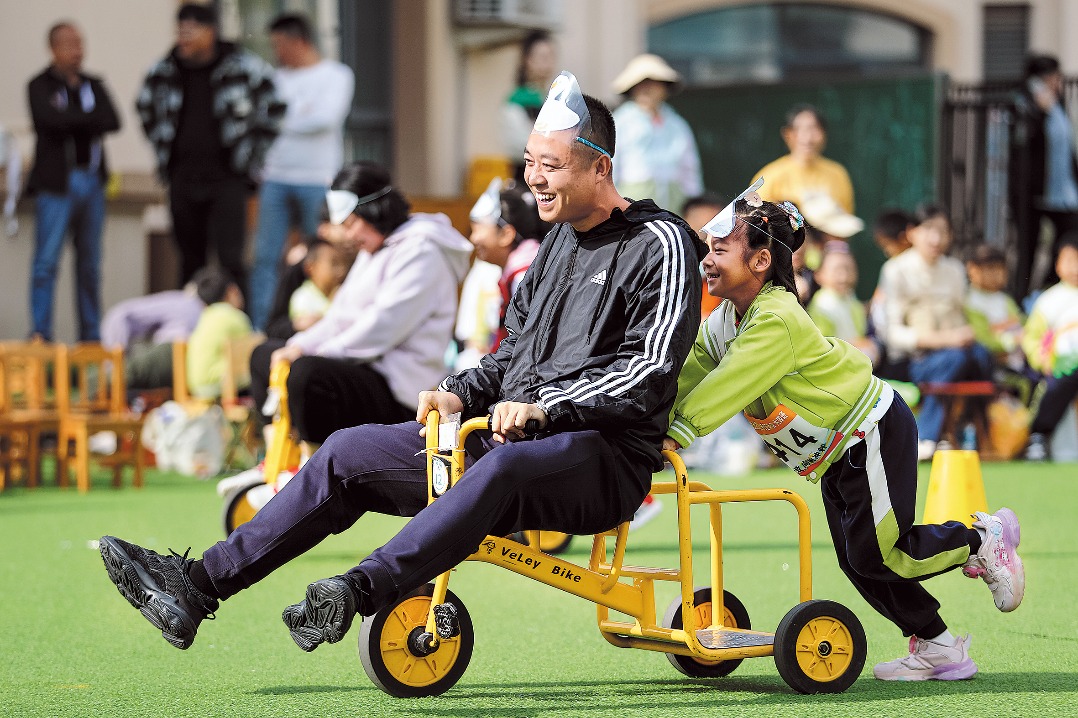County tempts parents to have more children

A county in East China's Jiangxi province has announced it will pay 13,000 yuan ($1,825) to families that have three children in an effort to lift falling birth rates.
On Oct 25, Shangyou county in the city of Ganzhou introduced a policy that grants a one-time payout of 7,000 yuan for families having a second child and 13,000 yuan for those having a third.
The county's move reflects similar measures that have been adopted in many Chinese cities aimed at addressing the nation's falling population.
Last year, 9.02 million babies were born in China, according to the National Bureau of Statistics, while 11.1 million people died. The NBS data reflects the nation's underlying rapidly aging population, and efforts by governments at various levels nationwide have sought to pick up the birthrate as a result.
In Shangyou, for government agencies and public institutions, maternity leave for employees expecting a second or third child has been extended from 188 days to 218 days, with salaries paid in full during the leave period.
Furthermore, families in the county with a second or third child who purchase newly built residential properties within three years after childbirth will receive subsidies of 10,000 and 20,000 yuan, respectively, according to the policy.
This year, several regions in Jiangxi have implemented policies to promote population growth, with hongbao — "red envelopes" containing money — given to incentivize childbirth reaching numerous households.
Chongyi county in Ganzhou offers a 2,000 yuan nutritional subsidy to pregnant women expecting a third child, while Anyuan district and Shangli county in Pingxiang city have also introduced supportive policies for families welcoming their third child.
On Oct 28, the General Office of the State Council issued measures aimed at establishing a childbirth subsidy system and enhancing housing policy support for multi-child families. "We need to improve the policy system and incentive mechanisms for childbirth support, establish a comprehensive population service system that serves everyone throughout their entire life, effectively reducing the costs associated with childbirth, upbringing and education," the measures said.
Cash payouts have become the favored strategy for governments across the country in trying to encourage larger families.
In August, a village in Yichang, Hubei province, announced a 20,000 yuan payout for couples having a second child and 50,000 yuan for those with three or more children.
Last year, Hangzhou, Zhejiang province, introduced a series of supportive policies, including payouts of up to 20,000 yuan for families with two or three children.
In Hefei, Anhui province, a subsidy of 2,000 yuan is provided for the birth of a second child and 5,000 yuan for a third child.
The latest measures in Shangyou have rekindled the heated debate online about governments' approaches to incentivizing childbirth.
Some social media users have argued that the 13,000 yuan payout is merely a drop in the ocean compared to the cost of raising children.
However, others believe that the subsidy can address many early-stage childcare issues and that it may lead to further supportive policies.
Yuan Xin, vice-president of the China Population Association and a professor at Nankai University, said it is a positive sign that these incentive policies are being introduced in smaller cities and counties.
However, local governments should look beyond simplistic financial incentives, Yuan said.
"The greater significance lies in creating a social environment that promotes the birthrate and childrearing," he said.
He also emphasized that changes in cultural attitudes significantly influence young people's willingness to have children.
Liu Kun in Wuhan contributed to this story.
zhaoruinan@chinadaily.com.cn





































